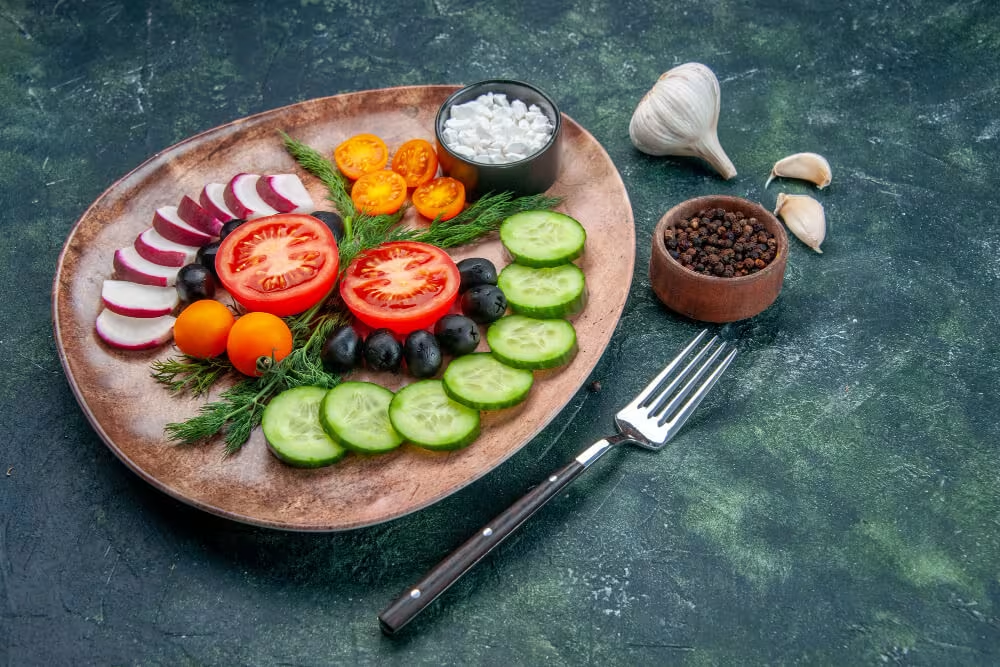Now that's real health

From my perspective as a doctor with over 35 years of experience, health doesn’t begin in the office or end with a prescription – it starts where you make your daily choices. And it’s those choices – what you eat, how you sleep, how you move, and how you handle stress – that build your health for years to come.
For years I have emphasized that three factors are crucial:
1. Diet – the most important medicine
you have at hand
What goes into your digestive tract has a huge impact on every system in the body – from the hormonal to the immune system.
- If you eat “junk,” don’t be surprised when your body sends warning signals.
- Make sure your diet is based on real, unprocessed foods: vegetables, fiber, healthy fats, and fermented foods.
- Sugar? It’s fuel for inflammation. Processed food? A silent enemy of your gut.
- Take care of your microbiome – healthy gut means a healthy brain, skin, and immune system.
- If something harms you, find the cause – food intolerances, leaky gut, or a lack of digestive enzymes can be identified through testing.
2. Environmental factors –
what surrounds you matters
Your body doesn’t function in isolation from the world. Everything around you – air, water, light, sound, relationships – affects your health.
- Sleep is the foundation – 7 to 9 hours of good-quality sleep is an investment in recovery and immunity.
- Exercise doesn’t mean elite sports. Daily activity is enough – a walk or light effort in the 130–150 bpm heart rate zone.
- Stay hydrated – a dehydrated body means lower energy and reduced immunity.
- Pay attention to what you breathe. Using air fresheners or toxic sprays? Stop.
- Surround yourself with good people. Relationships, a sense of community, and closeness are natural remedies for stress and longevity.
- Don’t ignore the little things: the quality of your underwear, detergents, or the lighting in your bedroom – it all matters.
3. Stress – the silent killer
that destroys from within
Stress isn’t “just in your head.” It physically harms your body – accelerating aging, weakening immunity, and disrupting hormonal balance.
- When you live under stress, your body is constantly in alarm mode. Cortisol rises, sleep deteriorates, and your gut stops functioning properly.
- Stress won’t disappear on its own. But you can learn to manage it: through breathing, mindfulness, movement, and time in nature.
- Support your body externally as well – some people benefit from adaptogens, such as ashwagandha.
- And again: diet plays a role here too – sweets increase stress, while fiber, omega-3s, and healthy fats help reduce it.
You don’t need to know the names of all hormones, and you don’t need to be a doctor. It’s enough to make a few good daily choices – in the kitchen, on a walk, in your relationships, and in what you let into your mind.
Don’t wait until something starts to hurt. Health is something worth taking care of early – every day, consciously, without excuses.
Health begins in the gut

If I had to point to one key area of health where everything begins, it’s the gut. Its condition largely depends on the composition of the microbiota – the bacteria that live in us and work for us. When we eat well, these bacteria are strong and support our immune system. When we eat poorly, the good bacteria disappear, replaced by yeasts (e.g., Candida albicans) and other unwanted microorganisms that only worsen our health.
That’s why your diet cannot be random. Every day, you provide “fuel” for your bacteria – and it’s worth making it something valuable. Fresh vegetables, fermented foods, fiber, natural kefir – these are not just foods, they are nourishment for your microbiome. By taking care of it, you support your immunity, mental health, metabolism, and skin condition. On the other hand, sugar, processed foods, white bread, or excessive sweet drinks – these fuel inflammation and infections.
I often see in my practice that when a patient eliminates sugar from their diet, they can effortlessly lose 4–6 kilograms within six months. But it’s not just the weight that improves – sleep gets better, infections occur less often, and energy levels rise. Everything starts to fall into place because the body is no longer overloaded.
What should be on your plate?

I recommend basing your diet on unprocessed foods. Whole grains (especially buckwheat and millet), whole-grain pasta cooked al dente, natural buttermilk, cold-pressed oils (e.g., flaxseed, sunflower), vegetables in any form, fermented foods (cucumbers, cabbage, beets), and high-quality seafood – all of these provide not only energy but also nutrients that nourish your gut microbiome.
For many of you, nuts, pumpkin and sunflower seeds, herbs, and spices like turmeric or ginger can also be helpful, as they have anti-inflammatory properties and support digestion. If you eat meat, it’s better to do so less often, and choose white meat over red. And remember: sweet drinks are a hidden sugar bomb. It’s better to replace them with water with lemon, herbal tea, or natural infusions.
Daily practice, not theory

You don’t need a revolution. Health is built through small steps – daily choices in the kitchen, the store, or even at a restaurant. Most often, it’s about limiting something, adding something else, and doing it consistently. The more you understand what you’re doing and why, the more likely the changes will last.
By taking care of your gut, you take care of your entire body. And although it sounds simple, the results can be truly spectacular.
Vitamin D – a deficiency I see in most patients
It’s also worth paying attention to a topic that is still too often overlooked – vitamin D deficiency. I regularly see this in my patients’ test results. In many cases, their vitamin D levels are dramatically low – regardless of the season.
Why is it so important? Because vitamin D regulates the entire immune system, affects bone health, calcium-phosphate metabolism, mood, and hormonal functions. Its deficiency can contribute to depression, chronic fatigue, frequent infections, and even difficulties in conceiving.
I believe vitamin D supplementation should be done consciously – based on your current levels in the body (test: 25(OH)D). Only then can the appropriate dose be chosen, ensuring it is both effective and safe.
Especially during the autumn and winter months (but often in summer too!), it’s worth checking your levels and taking action in advance. From my experience, correcting a vitamin D deficiency can dramatically improve immunity, well-being, and sleep quality.
Take care of it – it’s truly one of the simplest and most effective steps you can take for your health.
Health without excuses – simple steps that make a difference:
- Limit processed foods – the fewer labels and artificial ingredients, the better for your body and gut microbiome.
- Eat mindfully and regularly – 2–4 meals a day, without constant snacking. Give your body time to digest and recover.
- Incorporate more fresh vegetables into your daily meals – it’s not about perfection, but about balance.
- Include sources of fiber and natural fermentation – whole grains, fermented foods, seeds, and natural yogurts and buttermilk.
- Drink more water throughout the day – dehydration can cause headaches, fatigue, and reduced immunity.
- Prioritize sleep – at least 7 hours, preferably at consistent times – it’s the foundation for hormones, immunity, and recovery.
- Start moving – you don’t need to go to the gym. A walk, bike ride, or a few exercises at home – consistency is what matters.
- Breathe clean air and ventilate your spaces – especially the bedroom.
- Limit artificial scents and chemicals at home – air fresheners, fragranced cleaning products, and toxic cosmetics.
- Check your Vitamin D levels and – if needed – start supplementation.
- Limit sugar and sweetened drinks – not just for weight, but for the health of your gut, skin, brain, and hormones.
- Take a look at your relationships – stress often comes not just from work, but from what (and who) surrounds us.
- Find moments to unwind – breathing exercises, time in nature, stepping away from screens – these aren’t just “nice extras,” but biochemical support for your body.
- Choose better sources of protein – more seafood and legumes, less red meat.
- Pay attention to meal regularity – the body thrives on a rhythm that helps regulate hormones and metabolism.
- Try to limit screen exposure before bed – blue light disrupts melatonin production and sleep quality.
- Take care of your smile and relationships with loved ones – positive emotions have a powerful impact on mental health and immunity.
- Incorporate short breathing exercises or meditation into your daily routine – they help reduce stress and improve focus.